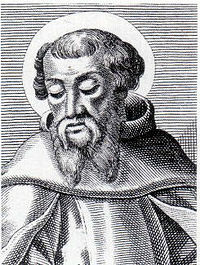As we enter the Easter season, one is inundated with a multiplicity of specials concerning the life and history of Jesus of Nazareth. Interestingly enough, many historical programs will elevate not the traditional four gospels of the Christian canon (i.e., Matthew, Mark, Luke, and John), but rather bizarre gospels such as the Gospel of Judas, the Gospel of Mary Magdalene, the Gospel of Thomas, and so on. However, it may surprise the reader to know that the early church was well aware of the existence of these writings. The early church not only knew about these writings, they also with great solidarity rejected such writings. Why? Was it that the early Christians were segmented and outvoted those who promoted these bizarre gospels as some may claim? Absolutely not! These bizarre gospels were rejected because they did not follow in the lineage of apostolic truth and authority. Rather, the writers of these bizarre gospels were up to something far more sinister. Irenaeus of Lyons, an early church father, wrote a book titled Against Heresies around A.D. 150. Irenaeus said the following about those who purport such writings:
For this is the subterfuge of false persons, evil seducers, and hypocrites, as they act who are from Valentinus. These men discourse to the multitude about those who belong to the Church, whom they do themselves term “vulgar,” and “ecclesiastic.” By these words they entrap the more simple, and entice them, imitating our phraseology, that these [dupes] may listen to them the oftener; and then these are asked9 regarding us, how it is, that when they hold doctrines similar to ours, we, without cause, keep ourselves aloof from their company; and [how it is, that] when they say the same things, and hold the same doctrine, we call them heretics? When they have thus, by means of questions, overthrown the faith of any, and rendered them uncontradicting hearers of their own, they describe to them in private the unspeakable mystery of their Pleroma. But they are altogether deceived, who imagine that they may learn from the Scriptural texts adduced by heretics, that [doctrine] which their words plausibly teach. For error is plausible, and bears a resemblance to the truth, but requires to be disguised; while truth is without disguise, and therefore has been entrusted to children. And if any one of their auditors do indeed demand explanations, or start objections to them, they affirm that he is one not capable of receiving the truth, and not having from above the seed [derived] from their Mother; and thus really give him no reply, but simply declare that he is of the intermediate regions, that is, belongs to animal natures.[1]
Sound harsh? Well, Irenaeus knew that such proponents were not seeking to unveil some mystery about Jesus of Nazareth, rather these early Gnostic gospel writers were seeking to promote their own ideology, drifting from their Mother (the Church), and teach doctrines that were not in line with the life and teachings of Jesus of Nazareth. If Jesus was who Irenaeus and the early church knew Him to be, then such actions were among the most egregious that one could commit. But what of the gospels found in the Bible? Irenaeus and the early church were fully aware of the lineage of these gospels. Irenaeus recounts the following:
We have learned from none others the plan of our salvation, than from those through whom the Gospel has come down to us, which they did at one time proclaim in public, and, at a later period, by the will of God, handed down to us in the Scriptures, to be the ground and pillar of our faith. For it is unlawful to assert that they preached before they possessed “perfect knowledge,” as some do even venture to say, boasting themselves as improvers of the apostles. For, after our Lord rose from the dead, [the apostles] were invested with power from on high when the Holy Spirit came down [upon them], were filled from all [His gifts], and had perfect knowledge: they departed to the ends of the earth, preaching the glad tidings of the good things [sent] from God to us, and proclaiming the peace of heaven to men, who indeed do all equally and individually possess the Gospel of God. Matthew also issued a written Gospel among the Hebrews in their own dialect, while Peter and Paul were preaching at Rome, and laying the foundations of the Church. After their departure, Mark, the disciple and interpreter of Peter, did also hand down to us in writing what had been preached by Peter. Luke also, the companion of Paul, recorded in a book the Gospel preached by him. Afterwards, John, the disciple of the Lord, who also had leaned upon His breast, did himself publish a Gospel during his residence at Ephesus in Asia.[2]
Therefore, the four canonical gospels were accepted since they held apostolic authority and were in line with the true life and teachings of Jesus of Nazareth. In fact, J. Warner Wallace denotes that there are at least three chains of command in his book Cold-case Christianity. In his charts on pages 221, 225, and 228, Wallace demonstrates that the Apostle John’s chain of command led to the Codex Sinaiticus as John taught Ignatius and Polycarp (70), Ignatius and Polycarp taught Irenaeus (110), Irenaeus taught Hippolytus (180), Hippolytus trained others (220) which led to the time of a complete codex (Codex Sinaiticus, AD 350). The Apostle Paul’s chain of command included Paul’s teaching of Linus, Linus teaching Clement, Clement teaching Evaristus, Alexander, Sixtus, Telesphorus, Pius, Hyginus, who taught Justin Martyr, who taught Tatian, who taught others which led to the time of the Codex Sinaiticus. The Apostle Peter’s chain of command included Peter’s teaching of John Mark, who taught Avilius, Anianus, Kedron, Primus, Justus, who taught Pantaenus, who taught Clement, who taught Origen and Pamphilus, who taught Eusebius, which led to the time of the Codex Sinaiticus (See Wallace, Cold-case Christianity).
In conclusion, the canonical gospels can be trusted. The same cannot be said concerning these so-called gnostic gospels.
Happy Easter!!!
Bibliography
Irenaeus of Lyons. “Irenæus against Heresies.” In The Apostolic Fathers with Justin Martyr and Irenaeus, Volume 1, The Ante-Nicene Father. Edited by Alexander Roberts, James Donaldson, and A. Cleveland Coxe. Buffalo, NY: Christian Literature Company, 1885.
Wallace, J. Warner. Cold-case Christianity: A Homicide Detective Investigates the Claims of the Gospels. Colorado Springs: David C. Cook, 2013.
[1] Irenaeus of Lyons, “Irenæus against Heresies,” in The Apostolic Fathers with Justin Martyr and Irenaeus, ed. Alexander Roberts, James Donaldson, and A. Cleveland Coxe, vol. 1, The Ante-Nicene Fathers (Buffalo, NY: Christian Literature Company, 1885), 439–440.
[2] Irenaeus of Lyons, “Irenæus against Heresies,” in The Apostolic Fathers with Justin Martyr and Irenaeus, ed. Alexander Roberts, James Donaldson, and A. Cleveland Coxe, vol. 1, The Ante-Nicene Fathers (Buffalo, NY: Christian Literature Company, 1885), 414, bolded for emphasis.
Copyright March 2015. Brian Chilton.





